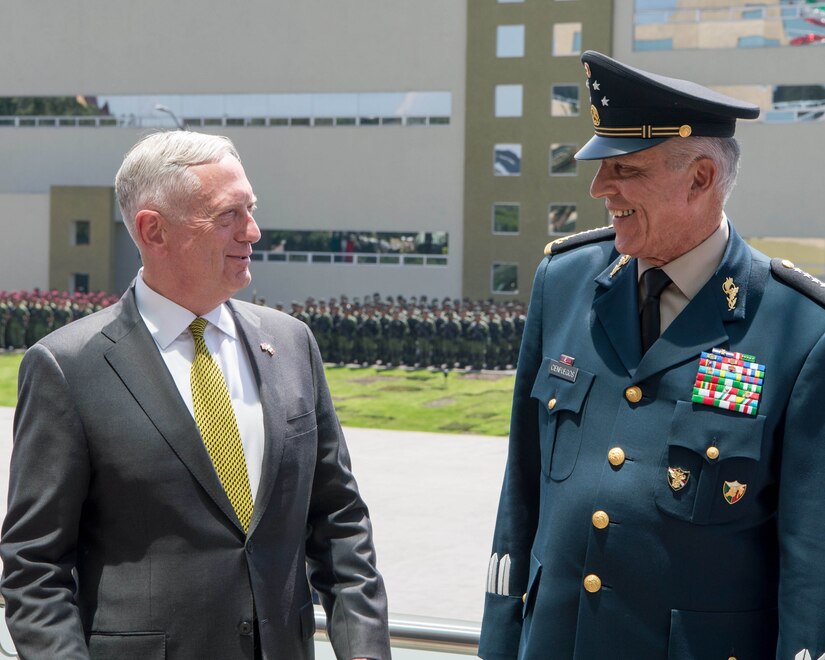By Jim Garamone, Defense.gov
WASHINGTON -- Democracy is succeeding in Latin America and
can be a beacon to the rest of the world, Defense Secretary James N. Mattis
said yesterday at the Defense Ministerial in Cancun, Mexico.
The Conference of Defense Ministers of the Americas,
co-hosted by Mexican Secretary of National Defense Gen. Salvador Cienfuegos
Zepeda and Mexican Secretary of Navy Adm. Vidal Francisco Soberon Sanz, allows
defense ministers from Canada to Chile to gather and discuss shared hemispheric
defense challenges. The forum was founded by then-Defense Secretary William J.
Perry.
“From Ottawa to Buenos Aires to Santiago, from south to
north and from east to west, our nations increasingly represent an island of
democratic stability amidst a global sea of instability due to malign
influence,” Mattis said during his address. “In bringing us together, Mexico
continues to show important strategic leadership building trusted relationships
between us based on respect, cooperation, and mutual understanding.”
Mattis said there are challenges to stability and security
in the Americas, from transnational criminal syndicates to illegal immigration
to humanitarian issues.
Partnership is Crucial
Partnership among the nations of the hemisphere is crucial
to addressing these challenges, he said.
Cuba, Nicaragua and Venezuela are the exceptions to the rule
in the region. Mattis called the leadership in Cuba “sad and unresponsive.”
Nicaragua and Venezuela tried to model their countries after Cuba. But the
nations, “cannot hide from the reality they face as the world recognizes that
the Cuba model no longer works for anyone, even Cuba,” he said.
“Democracy is working,” Mattis said. “Our democratic nations
send a message as we uphold our shared values, including respect for human
rights, the rule of law, and sovereignty. And that message reverberates around
the globe.”
The success is seen even in nations like Russia and China
that still try to tear down the existing international order to emplace
something that benefits them alone. Mattis said those countries “threaten
sovereignty with predatory investments, piling up massive debt and seeking undue
influence over other countries diplomatic, political, and economic decisions.”
Fostering Understanding, Cooperation
He called on the hemispheric nations to remain steadfast in
the commitment to foster greater understanding and cooperation. “We see the positive
impact our growing partnerships have for ensuring peace and stability in this
region and beyond,” Mattis said. “We see it in this very room as we listen with
respect to each other and the vision we have so we can collaborate better
together.”
The challenges in the hemisphere cannot be addressed by one
nation alone, Mattis said. “In tackling such difficult challenges together, we
prove that like-minded nations are stronger when we collaborate, that we are
then more responsive in serving our populations when disaster strikes,” he
said. “So I express my support for making humanitarian assistance and disaster
relief a permanent theme for the CDMA and for the Inter-American Defense Board
to play a more intense role in strengthening regional humanitarian assistance/disaster
relief cooperation, and my Department will stand with you, will stand alongside
you, when trouble looms.”
Mattis noted the decision to send the hospital ship USNS
Comfort is one example of cooperation. The ship will help relieve the strain on
local health care systems overburdened by caring for refugees from Venezuela.
“We note that in the midst of … this man-made disaster in
Venezuela that Russia is sending a bomber, while the U.S. Navy is sending a
hospital ship with doctors,” he said.
The Comfort’s medical staff will come from the U.S. Navy, as
well as Mexico and other area countries.

No comments:
Post a Comment